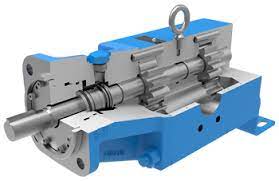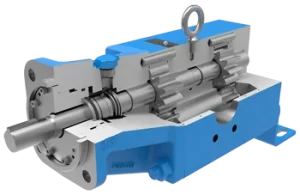

Nobody likes a leaky pump and the unscheduled downtime and increased maintenance needs. When these pumps are moving aggressive acids and slurries, they can leak faster and when they do leak they create an unsafe work environment.
Obviously, the biggest contributor to this problem is how quickly mechanical seals in conventional pumps wear out in these kinds of environments.
An often overlooked alternative is the Air Operated Double Diaphragm Pump (AODD). This is because AODD chemical pumps can vary in both quality and effectiveness for this application across the market. However, there are AODD pumps on the market which are ideally suited for pumping hazardous materials.
Why Use an AODD Pump?
AODD pumps use bolts to secure the pump and create their seal – so there is no mechanical seal that will need regular replacement – saving money over electric pumps. As their name suggest plastic pumps can be made of a plastic that doesn’t react with the materials you are pumping – which gives it a longer life compared to other options.
Unlike electric pumps, AODD pumps can run dry and deadhead without the risk of burning, seizing, or harming their components. Finally AODD pumps are gentler than electric pumps – with hazardous materials being fragile – mild turbulence from passing through an electric pump prevents damage to the material.
What Can Cause Leaks In AODD Pumps?
We all know that safety is the number one concern when dealing with hazardous materials. In order to use AODD pumps in your facility to move hazardous materials it’s a good idea to understand the common causes of leakage and how to remedy it.
For moving hazardous materials the most common AODD pumps used are plastic and the most common cause of leakage in a plastic pump is creep and cold flow.
Creep is when a pump deforms (permanently) under load.
Cold flow is when the pump is subjected to continuous loads at a fluctuating temperature – this can cause the different plastic parts to expand and/or contract at different rates which causes deformation of the pump.
Creep occurs over the life of any pump. It is just a more common cause of failure in plastic pumps because they don’t corrode the way metal pumps do. You can expect a good 10 years’ service out of the right AODD plastic pump for your application.
Is it time to replace your hazardous materials pumps?
If your hazardous materials pumps have a corroded pump exterior, leaks around the manifolds, worn internal fluid bowls and discoloration on the floor caused by severe leakage, it might be time to look at replacing that pump. Get in touch with the team at Pye-Barker at 404-363-6000 or drop us a line sales@pyebarker.com and we can explore your options for replacing that pump.


